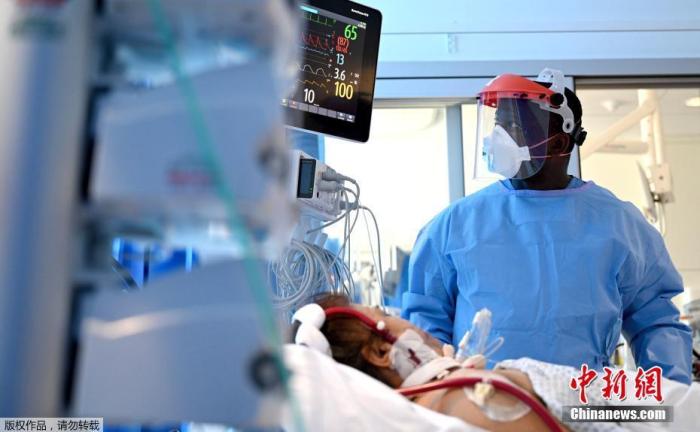According to a comprehensive report by China News Service on May 31, a number of new studies attempting to estimate the actual number of people infected with the new coronavirus have shown that the world population still has a long way to go to achieve the so-called "group immunization".
The New York Times reported that according to these studies, the proportion of people infected with new and new coronaviruses in many parts of the world is still at the single-digit level, and experts believe that only 60% to 80% of people are infected and produce antibodies. The local population can have a group immunity to the new coronavirus.
Data map: In the Intensive Care Unit of Royal Papworth Hospital in Cambridge, UK, a clinical worker wearing protective equipment is caring for patients with new coronary pneumonia.
The study pointed out that even in the cities with the worst outbreaks, the vast majority of people are still vulnerable to infection. In the case of New York City, the hardest hit area in the United States, as of early May, about 20% of the local people were infected with the new coronavirus. In Sweden and the United Kingdom, the rate of infected people is only between 7% and 17%.
According to Michael Mina, an epidemiologist at the Harvard School of Public Health, combining these studies can lead to the conclusion that it is unlikely that people will become immune to the new coronavirus in a short period of time.
Mina said, "To be honest, in the short term, we don't have a good way to safely establish group immunization. Unless we let the virus spread again, but I think society has decided that this is not a means we can use."
According to reports, all assumptions about mass immunization assume that people who have been infected with new coronavirus will be free from secondary infections. There is evidence that infected people can indeed develop immunity to the virus, but it is unclear whether all people will develop immunity and how long the immunity will last.
In addition, even if group immunity is achieved, some people will still be infected. Mina pointed out that group immunization is like a "firewall", but it can slow the spread of the virus.

